
Aleksander Ford
Рождение : 1908-11-24, Kijów, Imperium Rosyjskie (obecnie Ukraina)
Смерть : 1980-04-04
История
Aleksander Ford (born Mosze Lifszyc) was a Polish film director; and head of the Polish People's Army Film Crew in the Soviet Union during World War II. Ford became director of the nationalized Film Polski company following the Red Army occupation of Poland.
In 1948 the new communist authorities appointed him professor of the National Film School in Łódź. Roman Polanski was among his students. Another of Ford's protégés was the Polish film director Andrzej Wajda.
Ford made his first feature film, Mascot in 1930, after a year of making short silent films. He did not use sound until The Legion of the Streets (1932). When World War II began, Ford escaped to the Soviet Union and worked closely with Jerzy Bossak to establish a film unit for the Soviet-sponsored People's Army of Poland in the USSR. The unit was called Czołówka Filmowa Ludowego Wojska Polskiego (or simply Czołówka; spearhead).
After the war, Ford was appointed head of the government-controlled Film Polski and held enormous sway over the country's entire film industry. In the process of accumulating power he denounced a fellow film director, Jerzy Gabryelski, to the NKVD secret police, contentiously accusing him of "reactionary" and "antisemitic" views, which resulted in Gabryelski's arrest and torture. Ford and a group of colleagues from the Polish Communist Party rebuilt most of the country's film production infrastructure. Roman Polanski wrote in his biography about them: "They included some extremely competent people, notably Aleksander Ford, a veteran party member, who was then an orthodox Stalinist. […] The real power broker during the immediate postwar period was Ford himself, who established a small film empire of his own." For the next twenty years, Ford served as professor at the state-run National Film School in Łódź. He is perhaps best remembered for directing the first postwar documentary Majdanek - cmentarzysko Europy (Majdanek – the Cemetery of Europe) and the feature film Knights of the Teutonic Order (1960), based on a novel of the same name by Polish author Henryk Sienkiewicz.
Ford, a self-identified Communist, used his films to "express social messages on the screen," as in his documentaries: the award-winning Legion ulicy, (The Street Legion, 1932), Children Must Laugh (1936) and the postwar Eighth Day of the Week (1958) rejected by the communist party censors during the Polish October. Ford continued making films in Poland until the 1968 Polish political crisis. Accused of antisocialist activity and expelled from the Communist Party, Ford emigrated to Israel where he lived for the next two years. He later moved to Denmark and eventually settled in the United States. Ford made two more feature films, both of which were commercial and critical failures. In 1973, he made a film adaptation of Aleksandr Solzhenitsyn's novel The First Circle, a Danish-Swedish production that recounted the horrors of the Soviet gulag. In 1975 he made The Martyr (de), an English language, Israeli-German co-production based on the heroic story of Dr. Janusz Korczak. Blacklisted by the Polish communist government as a political defector, Ford became a non-person in contemporary discussions and analysis of Polish filmmaking. Isolated, he committed suicide in a Florida hotel on 4 April 1980.
From Wikipedia, the free encyclopedia

When in a small village appears a little boy named Olek, the life of its inhabitants change. Olek senses danger.

Director

Screenplay
The story of the life of a political prisoner in a Russian gulag. Based on the book by Aleksandr Solzhenitsyn

Director
The story of the life of a political prisoner in a Russian gulag. Based on the book by Aleksandr Solzhenitsyn

Director
A serious Swiss melodrama/documentary about abortion, marketed as a sexy exploitation movie in the US. The film contains real medical footage.
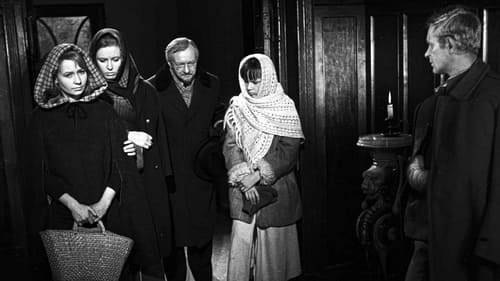
Director
1945 год. В ходе продолжающегося наступления Красная армия очищает территорию Польши от основной массы германских войск, однако разрозненные отряды немцев всё ещё остаются на польской земле. Доктор Роде, движимый соображениями врачебной этики, отказывается эвакуироваться в Германию. Группа освобождённых польских офицеров, многие из которых пробыли в немецком лагере более пяти лет, останавливается на ночлег в пустующей городской квартире. Один из них ранен и товарищи приводят ему врача – Роде.
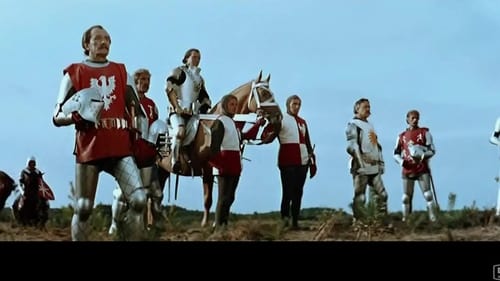
Dialogue
Превосходная, нестареющая экранизация исторического романа Генриха Сенкевича. В фильме рассказывается о борьбе поляков против рыцарей Тевтонского ордена в конце XIV - начале XV века.
После нападения на одно из склений была убита жена князя Юранда. Он поклялся мстить тевтонцам до последней капли крови...

Screenplay
Превосходная, нестареющая экранизация исторического романа Генриха Сенкевича. В фильме рассказывается о борьбе поляков против рыцарей Тевтонского ордена в конце XIV - начале XV века.
После нападения на одно из склений была убита жена князя Юранда. Он поклялся мстить тевтонцам до последней капли крови...

Director
Превосходная, нестареющая экранизация исторического романа Генриха Сенкевича. В фильме рассказывается о борьбе поляков против рыцарей Тевтонского ордена в конце XIV - начале XV века.
После нападения на одно из склений была убита жена князя Юранда. Он поклялся мстить тевтонцам до последней капли крови...

Writer
Zbigniew Cybulski and Sonja Ziemann play lovers struggling to find happiness and privacy in overcrowded Warsaw. The movie shows an honest picture of life in a war-damaged city, contrasting the characters' difficulties with their dreams of a better life. It was banned in Poland in 1958 and would not been seen anywhere until its European release one year later.

Director
Zbigniew Cybulski and Sonja Ziemann play lovers struggling to find happiness and privacy in overcrowded Warsaw. The movie shows an honest picture of life in a war-damaged city, contrasting the characters' difficulties with their dreams of a better life. It was banned in Poland in 1958 and would not been seen anywhere until its European release one year later.
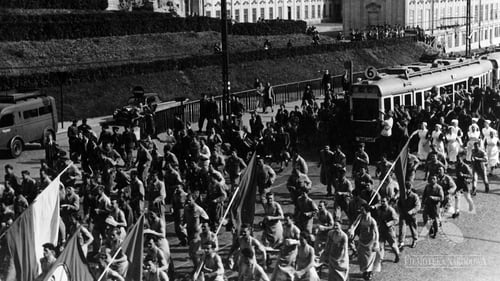
Writer
1947 год, разрушенная послевоенная Варшава… История пяти подростков, чьи судьбы обожгла война. Мальчишек пытаются использовать в своих целях преступные элементы. Ребята, привыкшие к образу жизни в военное время, с трудом приспосабливаются к мирной действительности. Втянутые в преступные махинации, они оказываются перед судом по обвинению в краже…

Director
1947 год, разрушенная послевоенная Варшава… История пяти подростков, чьи судьбы обожгла война. Мальчишек пытаются использовать в своих целях преступные элементы. Ребята, привыкшие к образу жизни в военное время, с трудом приспосабливаются к мирной действительности. Втянутые в преступные махинации, они оказываются перед судом по обвинению в краже…
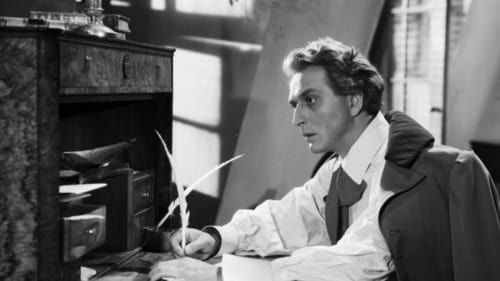
Screenplay
Фильм рассказывает о юности известного композитора Фредерика Шопена,о пяти годах его жизни ( 1825-1830). Так как картина была поставлена в период соцреализма, согласно с духом эпохи, Шопен показан как революционер того времени,что не соответствует в полной мере исторической правде.

Director
Фильм рассказывает о юности известного композитора Фредерика Шопена,о пяти годах его жизни ( 1825-1830). Так как картина была поставлена в период соцреализма, согласно с духом эпохи, Шопен показан как революционер того времени,что не соответствует в полной мере исторической правде.
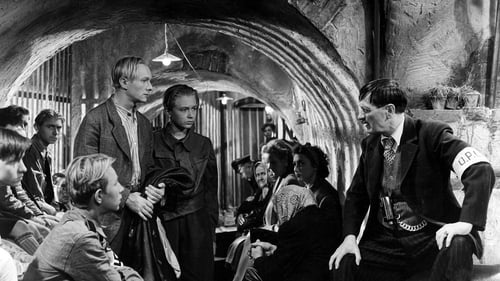
Screenplay
Военная драма, показывающая трагедию еврейского населения в оккупированной Варшаве. Герои – жители варшавского доходного дома – дети и взрослые. Начинается война, немцы берут Варшаву, создают гетто. Родители Фредека сотрудничают с нацистами, раскрывают еврейское происхождение доктора Бялека, а затем занимают его квартиру.

Director
Военная драма, показывающая трагедию еврейского населения в оккупированной Варшаве. Герои – жители варшавского доходного дома – дети и взрослые. Начинается война, немцы берут Варшаву, создают гетто. Родители Фредека сотрудничают с нацистами, раскрывают еврейское происхождение доктора Бялека, а затем занимают его квартиру.

Editor
Movie filmed directly after the liberation of the concentration camp at Majdanek.

Director
Movie filmed directly after the liberation of the concentration camp at Majdanek.

Editor

Director

Director
A look at the lives of people who work on the barges and boats flowing across the Vistula River.

Director
One of the few surviving documentaries about Jewish life in Poland before World War II, this film was produced to raise funds for the Vladimir Medem Sanitarium, an institution that stood as the embodiment of health and enlightenment, in striking contrast to the grim images of urban Polish-Jewish poverty.

Writer
Describe the harsh reality attempts of establishing a Jewish settlement in Israel and the efforts of the Arab to prevent it. The film is considered as the first talking film in Palestine Israel.

Director
Describe the harsh reality attempts of establishing a Jewish settlement in Israel and the efforts of the Arab to prevent it. The film is considered as the first talking film in Palestine Israel.

Director
Мать Юзека, портниха, в результате несчастного случая на несколько месяцев прикована к постели. Чтобы заработать средства к существованию, паренёк по совету друга Владека вступает в "легион улицы", становится продавцом газет. Он знакомится с Яськой, девушкой, которую полюбит. Матери Юзека необходима дорогостоящая операция. Есть только один способ заработать на неё денег - не разносить, а развозить газеты. Но для этого нужен велосипед. Купить его нет возможности. В это время организуется уличная велогонка и главный приз за победу в ней - велосипед...

Director
Feliks Promienski inherits from his aunt a small clay figurine representing a pagan god. And from that moment happiness begins to favor him. At races, while playing roulette and in love. At the races Feliks meets Beata .










